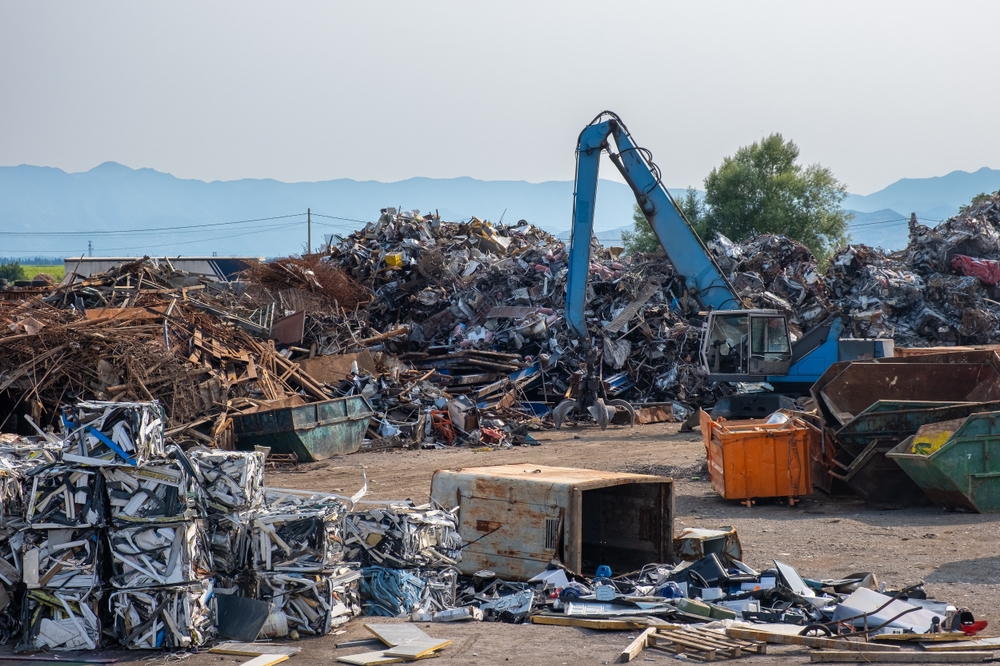You’re driving past a scrapyard, catching sight of towering piles of twisted steel, copper wires, and aluminum scraps. It looks like chaos, but to someone, that’s treasure. Who even needs all this junk? you wonder. The answer? Some of the world’s biggest industries lean on scrap metal more than freshly mined ores, turning yesterday’s junk into tomorrow’s buildings, cars, and gadgets. Scrap metal isn’t just a side hustle—it’s a lifeline for sectors aiming to cut costs and tread lighter on the planet. This blog shines a light on which industries prioritize scrap over raw materials, why they do it, and how Pakistan’s market fits in. Whether you’re curious about recycling or seeking a metal scrap supplier, let’s sift through the metal and uncover its value!
Why Choose Scrap Metal Over Raw Materials?
Scrap metal offers practical advantages that make it a preferred choice for many industries, especially when sourced from reliable steel scrap suppliers.
- Cost Savings – Recycling scrap is cheaper than mining and refining ores, lowering production costs and making end products more affordable for consumers.
- Energy Efficiency – Melting scrap consumes less energy—up to 74% less for aluminum and 60% for steel—compared to processing virgin materials.
- Abundant Supply – Scrap from old vehicles, buildings, or appliances ensures a steady stream, reducing reliance on finite mineral deposits.
- Sustainability Benefits – Using scrap cuts mining’s environmental toll, preserving land and reducing emissions, a priority for global and Pakistani industries.
The Steel Industry: A Scrap Metal Powerhouse
The steel industry is one of the heaviest users of scrap metal, often favoring it over raw iron ore.
- Recycled Steel Dominance – Over 40% of global steel production uses scrap, with electric arc furnaces melting it into new steel for construction and manufacturing.
- Cost-Effective Production – Scrap steel, sourced from steel scrap metal suppliers, reduces reliance on expensive coke and iron ore, keeping prices competitive.
- Quality Retention – Recycled steel maintains strength and durability, suitable for beams, pipes, and automotive parts without compromising performance.
- Pakistan’s Role – Pakistan’s steel mills rely on local and imported scrap to produce rebar and sheets, supporting infrastructure and export markets.
Construction: Building with Recycled Metal
Construction leans on scrap metal, especially steel, to meet demand for sustainable and affordable materials.
- Structural Steel – Recycled steel from scrap forms beams, columns, and reinforcements for buildings, bridges, and roads, ensuring long-lasting stability.
- Cost and Time Savings – Using scrap reduces material costs and speeds up production, critical for Pakistan’s rapid urbanization projects.
- Green Building Trends – Scrap metal supports eco-friendly construction, meeting global standards for reduced carbon footprints in new developments.
- Local Supply – Metal scrap suppliers in Pakistan provide construction firms with steady access to steel and aluminum scrap for diverse projects.
Scrap metal isn’t waste—it’s the foundation of modern construction, strong and sustainable.
Automotive Industry: Recycling for the Road
The automotive sector heavily depends on scrap metal to produce vehicles and parts, balancing cost and quality.
- Vehicle Frames – Recycled steel and aluminum from scrapped cars create new chassis, doors, and engine components with reliable strength.
- Lightweight Trends – Aluminum scrap, valued for its low weight, helps manufacture fuel-efficient cars, a growing focus in global markets.
- Closed-Loop Recycling – Old vehicles are dismantled, with metals reused in new cars, reducing waste and raw material needs significantly.
- Pakistan’s Contribution – Local manufacturers source scrap from steel scrap metal suppliers to produce affordable auto parts for domestic and export use.
Comparing Scrap Metal vs. Raw Materials in Key Industries
|
Industry |
Primary Scrap Used | Scrap Benefits |
Raw Material Drawbacks |
| Steel | Steel, iron | Lower cost, energy-efficient | High mining costs, energy-intensive |
| Construction | Steel, aluminum | Affordable, sustainable | Environmental damage, slower supply |
| Automotive | Steel, aluminum | Lightweight, recyclable | Expensive ores, higher emissions |
| Electronics | Copper, aluminum | High value, reusable | Rare metal scarcity, costly extraction |
Electronics: Small Parts, Big Scrap Demand
The electronics industry relies on non-ferrous scrap metals like copper and aluminum for critical components.
- Wiring and Circuits – Recycled copper from old devices forms new wires and circuit boards, essential for phones, laptops, and appliances.
- Heat Sinks – Aluminum scrap creates lightweight, heat-dissipating components, keeping electronics cool and functional during heavy use.
- E-Waste Recovery – Discarded gadgets provide a rich source of scrap, with recycling recovering valuable metals for reuse in new technology.
- Global and Local Impact – Pakistan’s electronics recycling sector taps into scrap metal suppliers to support growing tech manufacturing needs.
Shipbuilding and Heavy Machinery: Scrap’s Heavy Duty Role
Shipbuilding and machinery manufacturing use scrap metal for robust, large-scale applications.
- Ship Hulls – Recycled steel from scrapped vessels forms new ship frames, offering strength and corrosion resistance for maritime use.
- Machinery Parts – Heavy equipment like cranes or tractors uses scrap steel for gears, frames, and components, ensuring durability under stress.
- Cost Efficiency – Scrap reduces production costs for large-scale projects, critical for industries with tight budgets and long timelines.
- Pakistan’s Market – Local shipbreaking yards in Gadani supply steel scrap, supporting both domestic and international heavy industry needs.
From ships to skyscrapers, scrap metal proves you don’t need new ores to build something mighty.
Pakistan’s Scrap Metal Market and Suppliers
Pakistan’s scrap metal industry is a vital cog in its economy, with metal scrap suppliers driving key sectors.
- Steel Scrap Demand – Steel mills and construction firms consume large volumes of scrap, with Karachi and Lahore as major trading hubs.
- Non-Ferrous Growth – Copper and aluminum scrap support electronics and automotive industries, fetching higher prices due to global demand.
- Export Potential – Pakistan exports scrap to countries like China and India, boosting revenue and strengthening its recycling market.
- Supplier Reliability – Steel scrap metal suppliers in Pakistan offer quality-controlled scrap, ensuring usability for industrial applications.
Environmental and Economic Benefits of Scrap Metal
Using scrap metal over raw materials offers significant advantages, especially in sustainability-focused markets.
- Reduced Mining – Recycling scrap preserves natural resources, cutting deforestation and habitat loss from iron ore or bauxite extraction.
- Lower Emissions – Scrap-based production emits less CO2 than mining and refining, aligning with global climate goals and local regulations.
- Job Creation – Scrap collection, sorting, and recycling create jobs in Pakistan, from small-scale collectors to large recycling plants.
- Economic Savings – Industries save on raw material costs, passing benefits to consumers through affordable products like cars or building materials.
Scrap metal is a win-win—cheaper for industries, kinder to the earth, and a lifeline for jobs.
Challenges and Future of Scrap Metal Reliance
While scrap metal is vital, industries face hurdles and opportunities in scaling its use.
- Supply Consistency – Fluctuating scrap availability can disrupt production, requiring robust supply chains from metal scrap suppliers.
- Quality Control – Contaminated scrap needs thorough sorting to ensure purity, a challenge for Pakistan’s informal recycling sector.
- Tech Advancements – Automated sorting and cleaner smelting could boost scrap efficiency, with Pakistan poised to adopt these innovations.
- Policy Support – Stronger recycling regulations and incentives could grow Pakistan’s scrap industry, reducing reliance on imported raw materials.
Wrapping Up
Scrap metal is more than discarded junk—it’s a cornerstone for industries like steel, construction, automotive, and electronics, often outshining raw materials for cost, efficiency, and sustainability. In Pakistan, where recycling fuels both local manufacturing and global trade, metal scrap suppliers keep these sectors thriving. From recycled steel beams to copper circuits, scrap powers progress while easing the strain on natural resources. Ready to tap into this resource? Connect with a trusted supplier and see how scrap metal can shape your industry’s future!








